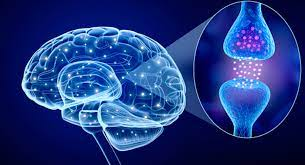Parkinson's
- May 26, 2022
- 2 min read
Parkinson's is a neurodegenerative disorder that primarily affects the nervous system and the parts of the body that are controlled by nerves. Symptoms of Parkinson's are barely noticeable in the early stages with slight shaking and slurred speech but slowly worsen as time passes and continue to harm the body's nervous system.

Symptoms of Parkinson's
Tremors- While most pronounced in the hands, tremors or intense shaking can affect all limbs of a person with Parkinson's. This shakiness makes it incredibly difficult for those with Parkinson's to go about normal tasks such as walking, writing, or gripping objects.
Slowed movement- Over time, Parkinson's disease may slow your movement, making simple tasks difficult and time-consuming. Your limbs become much less responsive and movements slows with your leg often dragging or shuffling behind as individuals with Parkinson's simply lack control of their limbs Muscle stiffness may also occur and this pain and lack of range of motion, makes it even more difficult to move
Balance- Parkinson's affects balance in the body and can make it very hard to stand upright without a cane or get up without assistance.
Loss of automatic movements- Many individuals with Parkinson's suffer from a loss of automatic movements including blinking, smiling or swinging your arms when you walk.
Speech- Ones speech may become slurred and the tone used to convey emotion may be lost in speech
Causes/Treatment
The cause of Parkinson's is unknown but it is thought to be genetic as those who have relatives with Parkinson's are much more likely to have the disorder as well making the disorder genetically inheritable. There are also no known cures for Parkinson's. As the cause of Parkinson's isn't known, there is no real way to prevent or mitigate risk of getting the disorder. The best option is medications that try to help patients regain balance and motor function however this can vary patient to patient in terms of effectiveness.



Comments